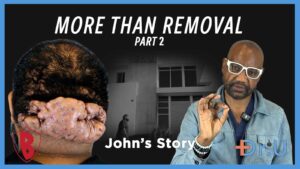How do doctors diagnose hair loss types: Individuals often ask us here at Dr. U Hair and Skin Clinic in Los Angeles how they should treat their hair loss. The answer is that it depends on which hair loss types are at work. A medical diagnosis will provide you with this information and the cause(s) behind your condition. Aside from noting patterns of baldness and thinning, here is a closer look at how specialists like Dr.U gather information to diagnose different types of hair loss.
Article Update July 2022
Although there are many in-depth and qualified medical information sources on the internet, diagnosing alopecia or hair loss should only be done by a licensed medical professional, such as a doctor or dermatologist. Continue reading below to see how a doctor or dermatologist would diagnose hair loss conditions.
A Review of Your Medical History and Lifestyle Practices

Patients will be asked questions about hair styling practices, diet, recent health changes (e.g., pregnancy), family history when the hair loss started, and whether there are any medical conditions to consider. The usage of any prescription drugs should also be disclosed since hair loss may result from side effects due to acne treatment medications, anti-depressants, beta-blockers, and medications with testosterone.
Pull Test for Hair Loss Types
The pull test offers a straightforward approach for assessing hair loss types. The doctor will grab a grouping of about 40-50 hairs and gently pull. The presence of 6 or more hairs is a sign of active hair loss. Here are the different hair loss types under this category
- Loose anagen syndrome – a hair loss condition seen in children where the hair is not firmly anchored to the follicle
- Anagen effluvium – a form of hair loss resulting from medical treatment
- Telogen effluvium – temporary hair loss caused by disruptions in the hair follicle life cycle
- Androgenic alopecia – common genetic hair loss, also known as male or female pattern hair loss
- Advanced androgenic alopecia – an autoimmune disorder caused by the immune system attacking hair follicles and healthy surrounding tissue
Blood Tests to Determine Illnesses That Cause Hair Loss
If Dr. U suspects that a medical or health issue may be responsible, they may decide to perform blood tests for one or more of the following conditions:
Thyroid Disease
A patient’s thyroid may be overactive (hyperthyroidism) or underactive (hypothyroidism). It is believed that certain hormones released by the thyroid gland may damage the follicles.
A thyroid blood test will check for levels of TSH (stimulating thyroid hormone) in the blood.
Iron Deficiency
Low iron means less oxygen available to the hair follicles [1]. A blood test will check for ferritin levels which pertain to the body’s iron content.
Androgen Excess
Androgens are a set of hormones that also includes testosterone. High androgen levels may be correlated with diffusely global hair thinning in women and common forms of hair loss and baldness in men.
Punch Biopsy For Hair Loss Types in Los Angeles Patients
A punch biopsy offers more specific information about the follicles themselves. Test results can help reveal whether a patient’s hair loss condition is due to inflammation, genetics, infections, or some emotional or physical stress on the body. A punch biopsy is performed by excising a circular patch of skin, similar in size to a pencil eraser. It is then sent to the lab for testing.
Ask Dr.U a question about your hair loss. Click the button below to get started.
Frequently Asked Questions – Hair Loss Types
How would I know if my hair loss is caused by fungus?
Your doctor may take a scraping or swab from the scalp to check for the presence of fungus, which may infect the follicles and lead to inflammation or cause breakage in the hair shafts.
Can a blood test be performed for nutritional deficiencies causing my hair loss?
Yes, a blood test can check for levels of vitamins, minerals, and other necessary nutritional components to see if levels are normal or not.
Further Reading
Read more about hair loss treatments enhanced by plant products.
References
- “Iron Deficiency Hair Loss: Symptoms, Treatment, and Regrowth.” Www.medicalnewstoday.com, 30 Apr. 2018, www.medicalnewstoday.com/articles/321668#:~:text=Research%20has%20determined%20that%20there. Accessed 28 July 2022.




